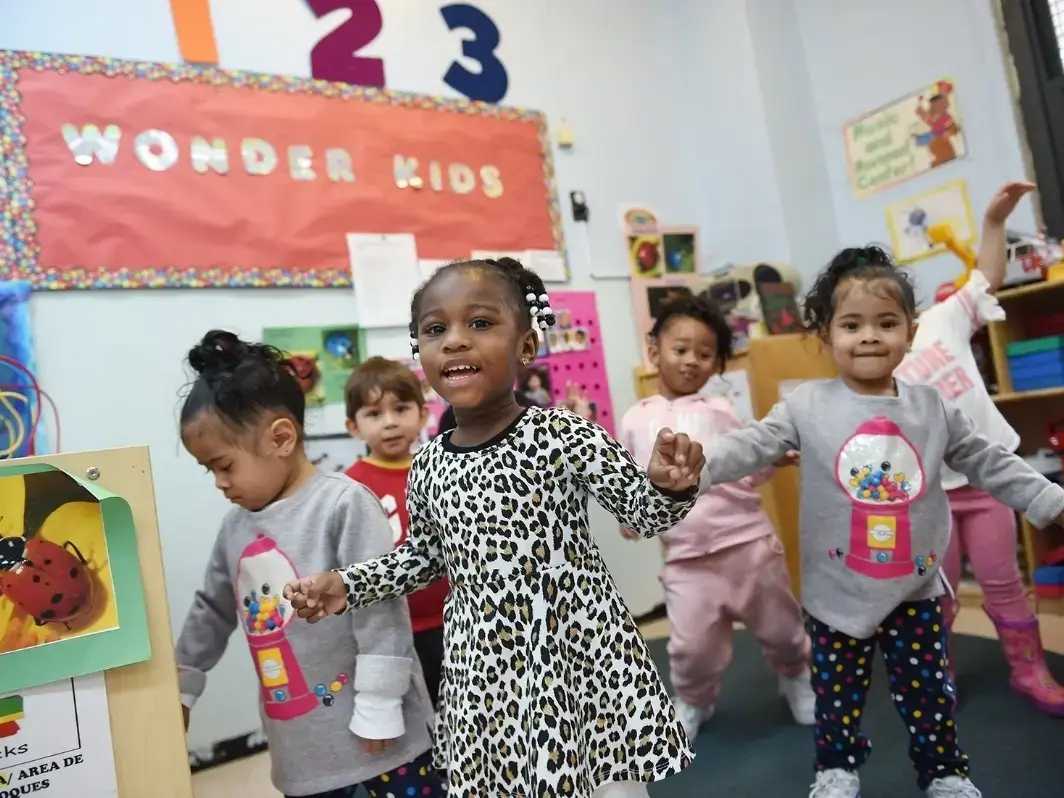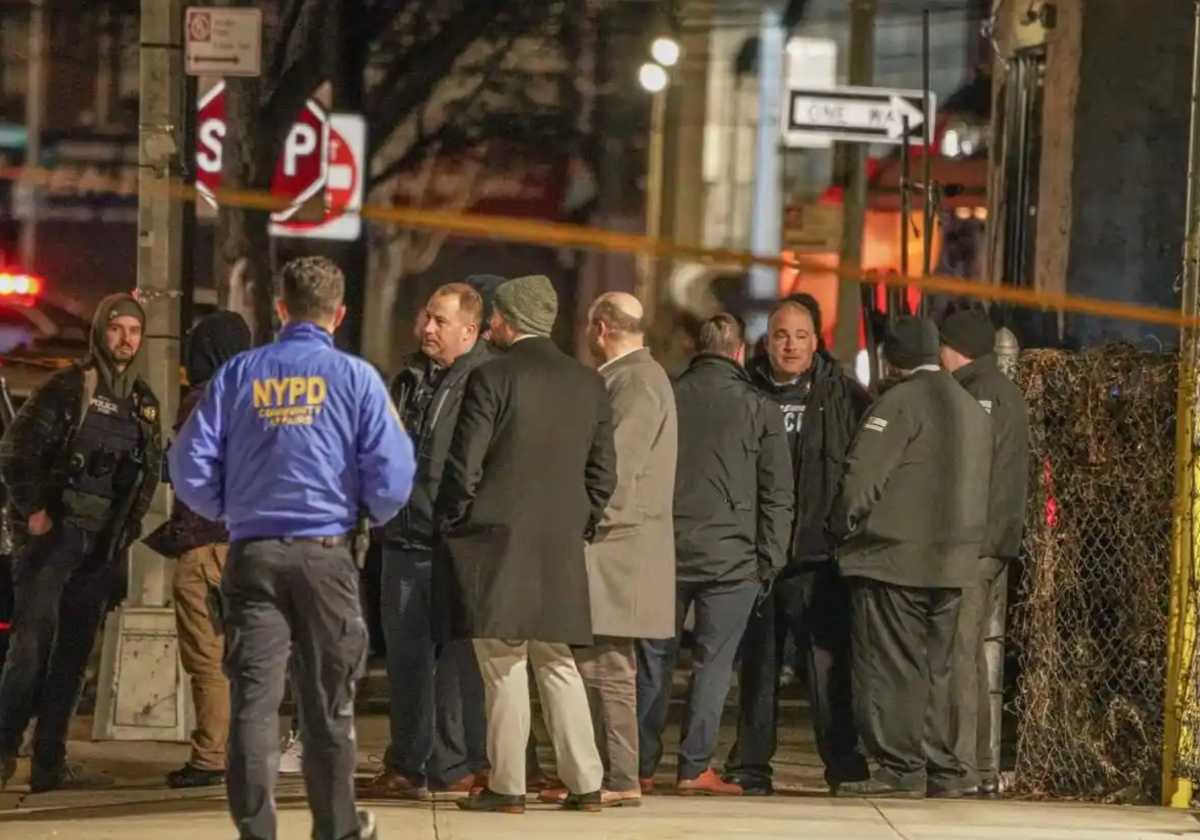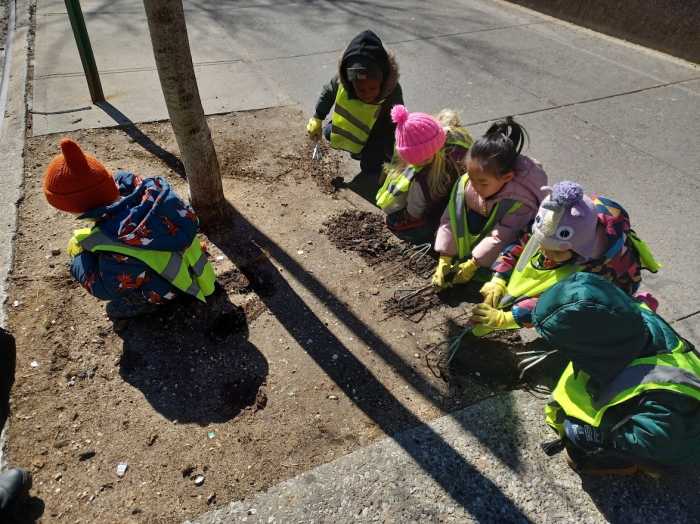Ongoing budget disputes between New York City and Albany halted enrollment in a vital childcare voucher program Monday that serves more than 60,000 families statewide—many of them in the Bronx, where parents face the city’s highest childcare cost burden.
First Deputy Mayor Randy Mastro announced Monday that families applying for subsidies through the threatened Child Care Assistance Program would be waitlisted indefinitely, blaming Albany for the $350 million shortfall in funding needed to rescue the program.
“Today, the state has essentially forced us to have to begin putting eligible applications on a waiting list,” Mastro told reporters at City Hall. “To be clear, this is a step we did not want to have to take.”
On Thursday, Mayor Eric Adams touted investments in childcare and education during a press event at Bayside High School in Queens, promoting his $115 billion “Best Budget Ever.” But notably absent was $350 million to match funds allocated by the state in its budget Tuesday to save the Child Care Assistance Program which is set to purge thousands of recipients from the program in coming weeks.
Without the funding, new eligible families cannot enroll and thousands of families in the Bronx will lose access to vouchers paying for their children’s childcare as early as this summer, adding to the city’s increasing affordability crisis and threatening parents’ ability to work and provide for their kids.
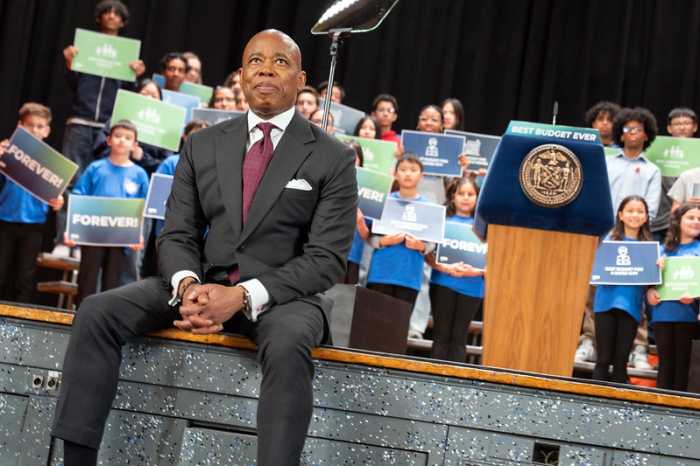
Following his budget reveal, Adams vocally opposed Gov. Kathy Hochul’s suggestion that the city should foot half the bill for a program that has historically been fully funded at the state level.
“This was their project,” Adams told reporters after the budget reveal, Thursday. He criticized the state for shifting the cost of the vouchers onto the city, calling it “wrong.”
City Hall colored the voucher crisis as a problem of the state’s own making, noting that the program ballooned in size from 2022 when only about 7,400 families received the state funded childcare vouchers to now when over 63,000 rely on the Child Care Assistance Program.
“While we are grateful that the state is committing to some funding, quite frankly, it doesn’t go far enough and is inconsistent with the governor’s own directive to enroll as many children as possible in the Child Care Assistance Program,” City Hall spokesperson Allison Maser said in a statement.
An Outsized Impact on the Bronx
Much of the increase in the number of childcare vouchers issued can be linked to the Bronx. In 2023 when the state raised the threshold for income eligibility from 200% to 300% of the federal poverty level, the Administration for Children Services (ACS) organized a targeted outreach campaign in 17 community districts, more than half of which were in the Bronx, aimed at enrolling families in areas with the highest concentrations of poverty, unemployment, and inadequate childcare resources.
—

Mayra Calderon, who has owned a home-based daycare in Longwood called Grow With Me Daycare since 2023, told the Bronx Times that all the families with children under her care use childcare vouchers. Without them, she said, their parents wouldn’t be able to afford the $400 a week that it costs to care for children under age two.
“ We live in a neighborhood where you’re not considered rich,” Calderon said. “Let’s put that first. We’re not rich. This neighborhood is not rich, it’s all working class and low-income families.”
Calderon’s neighborhood is representative of the broader experience of working families needing costly childcare throughout the borough. Eight out of the 10 neighborhoods in NYC where families spend the largest portion of their income on childcare are in the Bronx, peaking in Mott Haven and Hunts Point where some households spend up to 63% of their pay on childcare, according to an analysis of a 2022 state survey of childcare market rates by the nonprofit Citizens’ Committee for Children.

Although both lawmakers vowed to take on the affordability crisis as a key policy initiative, Mayor Adams and Gov. Kathy Hochul have not yet come to an agreement on how to fund the subsidies. City Hall officials said that the Mayor’s Office of Management and Budget offered the state an alternative solution which the state rejected.
Meanwhile Hochul’s office highlighted the investments she’s made in childcare subsidies since taking office, increasing the state funding to New York City by more than 100% and pointing out that city investments have remained relatively flat.
“Our increases in funding have advanced an agenda to make childcare more accessible and affordable for families statewide,” a spokesperson for the governor’s office said in a statement. “Even with massive state subsidies, keeping hundreds of thousands of kids enrolled in childcare must be a shared responsibility.”

Yolanda Diaz, Executive Director of the Sunshine Learning Center which operates three locations in the Bronx, said that the Child Care Assistance Program helps the center provide stability to vulnerable New Yorkers.
“For many of our families, our program is not just a school, it is the only place where their child receives consistent meals, a safe and calm environment, and the rest and care needed to grow and thrive,” Diaz said.
She said that cutting funding to the program would effectively “pull the rug out” from underneath families who are fighting to provide for their children.
“Our families are already stretched thin,” Diaz said. “Many live in poverty, face housing insecurity, and struggle to meet even the most basic needs. Some are juggling multiple jobs, while others are navigating unemployment or unstable work. And yet, they continue to show up for their children every single day.”
It’s Not Just About Childcare
Advocates warned that the ripple effect of cutting off thousands of families from affordable childcare would have disastrous consequences for quality of life, deepening inequity and the city’s workforce and economy as a whole.
Greg Morris, CEO of the NYC Employment and Training Coalition (NYCETC), told the Bronx Times that a lack of affordable, reliable childcare can make it harder for working parents to maintain steady employment with decent wages.
“We’ve got this tension that’s built right now between employers, in many cases who need to have their people there all the time, and then the individual who says, I can’t conceivably do that because of what it costs to take care of my family,” Morris said.
The impact on working parents is a key driver behind Hochul’s focus on subsidies. She often speaks at events about when she couldn’t find childcare as a working mother and had to leave her own job.
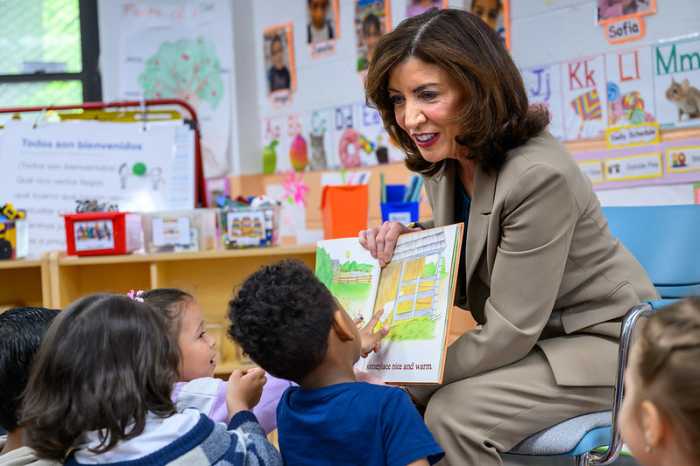
But it’s not just children and families who depend on the Child Care Assistance Program for economic mobility in the Bronx, local small business owners like Calderon will lose an important source of income if parents decided to remove their kids from her daycare due to concerns over affordability. Calderon said that running a home-based daycare already puts her under financial strain when comparing the amount of hours she works compared to her rates.
“ If I open at eight and I close at six, I’m already working overtime,” Calderon said. “I’m not getting paid for that. I don’t raise the price, but if I raise it, the parents won’t pay for it.”
The result, according to Gregory Brender, Chief Policy and Innovation Officer for the nonprofit Day Care Council of New York, is a struggling workforce where professionals are overworked and significantly underpaid compared to their counterparts in public schools—making it increasingly difficult to attract and retain qualified talent.
“What we’re seeing very often is people who are really good at early childhood education, and really want to make their careers in it, leave because they can’t afford to stay in these jobs,” Brender said. “And understandably, they could get, with their qualifications, a higher paying job in the school system.”
Without a strong, qualified workforce to support the city’s network of child care services, affordability is compounded by accessibility which could trigger staffing shortages and lower the number of available childcare seats in the city.
The myriad of complicated and expensive childcare issues is often forcing young families in the Bronx and the city to choose whether to raise their children in the city or relocate to someplace more affordable. Families with children under the age of six are more than twice as likely to leave the city as other New Yorkers, according to The Fiscal Policy Institute.
The Political Will Behind Vouchers
Bronx politicians have stepped up their advocacy for funding and legislation that supports Bronx residents struggling to find safe, affordable care. Bronx City Council Member Althea Stevens (D-16), who chairs the Committee on Children and Youth, penned a letter in March to Hochul and leaders of the state legislature that was co-signed by nearly every member of the city council, urging the state to fully fund the childcare voucher program.
Last week, Council Member Kevin C. Riley (D-12), spoke with parents in his Northeast Bronx district about the importance of universal care for two-year-olds, passing around a petition with advocacy organization, New Yorkers United for Child Care.
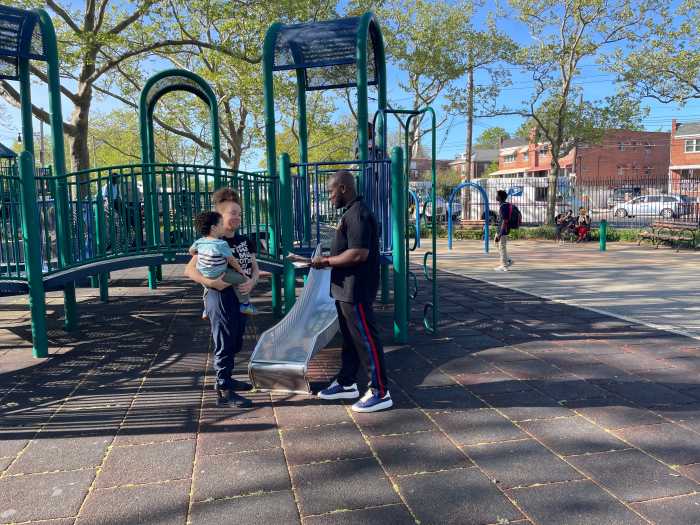
Despite the urgency, City Hall and Albany still have not closed the financial gap that would rescue the program. It’s got stakeholders like New Yorkers United for Child Care Executive Director Rebecca Bailin calling out elected officials for holding up the process.
“Mayor Adams is playing games with low-income New Yorkers in a contest with the governor,” Bailin said in a statement. “We need him to step up and make sure thousands of low income New Yorkers are protected from losing much needed child care.”
Elected Officials vying for the mayor’s job like City Council Speaker Adrienne Adams said Monday that the mayor was “giving up” on working families and that there should be “no excuses” for not funding childcare vouchers.
“They [families] deserve leadership that ensures continued access to childcare vouchers that support their children, our economy, and the retention of families in our city,” Speaker Addams said in a joint statement with Finance Chair Justin Brannan. “State and city officials must work towards a solution rather than preventing families from accessing care.”
Lawmakers will continue to negotiate over the city and state budget before voting to adopt them, but there’s limited time for Adams and Hochul to come to an agreement on vouchers if the mayor wants any additional funding from the state. State legislators are reportedly set to vote to adopt the budget this week over a month late and after 10 budget extensions.

